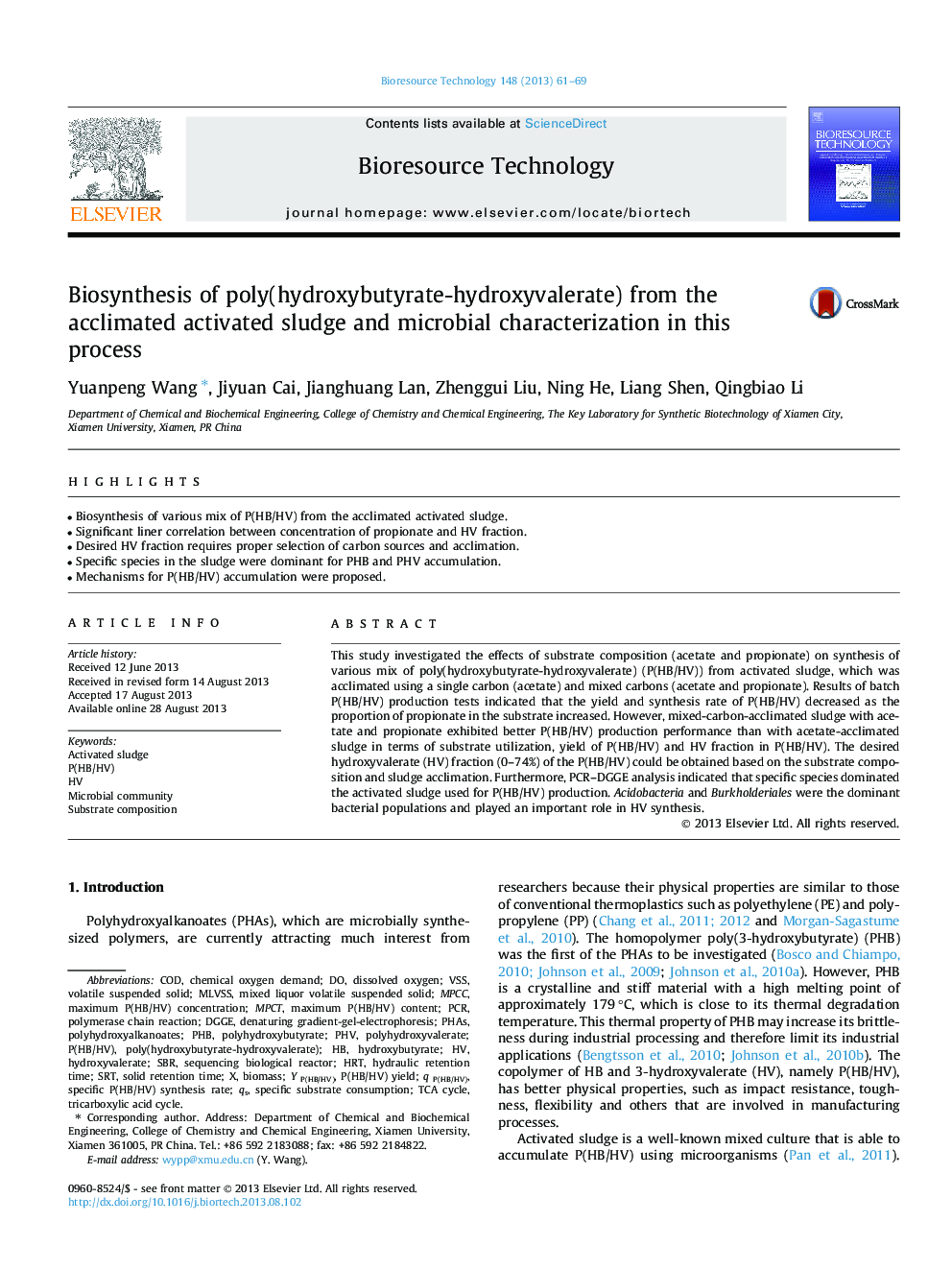| Article ID | Journal | Published Year | Pages | File Type |
|---|---|---|---|---|
| 7080108 | Bioresource Technology | 2013 | 9 Pages |
Abstract
This study investigated the effects of substrate composition (acetate and propionate) on synthesis of various mix of poly(hydroxybutyrate-hydroxyvalerate) (P(HB/HV)) from activated sludge, which was acclimated using a single carbon (acetate) and mixed carbons (acetate and propionate). Results of batch P(HB/HV) production tests indicated that the yield and synthesis rate of P(HB/HV) decreased as the proportion of propionate in the substrate increased. However, mixed-carbon-acclimated sludge with acetate and propionate exhibited better P(HB/HV) production performance than with acetate-acclimated sludge in terms of substrate utilization, yield of P(HB/HV) and HV fraction in P(HB/HV). The desired hydroxyvalerate (HV) fraction (0-74%) of the P(HB/HV) could be obtained based on the substrate composition and sludge acclimation. Furthermore, PCR-DGGE analysis indicated that specific species dominated the activated sludge used for P(HB/HV) production. Acidobacteria and Burkholderiales were the dominant bacterial populations and played an important role in HV synthesis.
Keywords
PolyhydroxyvaleratePHVSBRsRTMLVSSPHAsMPCCDGGEHRTPHBMPCTPolyhydroxyalkanoatesVSsdissolved oxygenSubstrate compositionchemical oxygen demandMicrobial communitySolid retention timehydraulic retention timeBiomassvolatile suspended solidActivated sludgemixed liquor volatile suspended solidHydroxybutyrateHydroxyvaleratepolymerase chain reactionPCRPolyhydroxybutyrateTCA cycletricarboxylic acid cycleCod
Related Topics
Physical Sciences and Engineering
Chemical Engineering
Process Chemistry and Technology
Authors
Yuanpeng Wang, Jiyuan Cai, Jianghuang Lan, Zhenggui Liu, Ning He, Liang Shen, Qingbiao Li,
